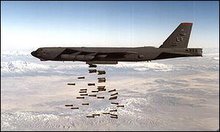With the way the media has spun in the last week, you'd think that the Bush administration totally ignored terrorism while the Clinton administration, led by cyber-hero Dick Clarke, were knocking threats out of the sky left and right on a daily basis. Of course, nothing could be further from the truth. In fact, an article from Insight Magazine in June 2001 (yes, June 2001!) proves that the Bush administration wasn't sitting on it's hands. The article is called Preparing for The Next Pearl Harbor, and provides some interesting context to the recent partisan hearings investigating 9/11:
Pearl Harbor probably will happen again. Only this time the attacks won't be in far-off Hawaii but against the American mainland. That's what some of the nation's top experts are saying as the national-security community scrambles to ward off attempts to attack the U.S. homeland with terrorist weapons of mass destruction and crippling raids on public- and private-sector information systems on which the entire economy -- and the American way of life -- depend.
...
For the first time since the Japanese fleet bombed Pearl Harbor nearly 60 years ago, the United States is fully vulnerable to attacks it cannot deter or easily prevent, Pentagon experts tell Insight.
...
President George W. Bush underscored his concern in a May 8[, 2001] statement: "The threat of chemical, biological, or nuclear weapons being used against the United States -- while not immediate -- is very real."
...
With Defense Secretary Donald H. Rumsfeld ripping apart obsolete defense doctrines to keep the United States on the cutting edge of world leadership, others, with a much lower profile, are working on a more fundamental issue: homeland security.
After years of dithering under Clinton, say defense specialists, the Bush White House taking the matter seriously. "Virtually every vital service: water supplies, transportation, energy, banking and finance, telecommunications, public health -- all of these rely on computer and fiber-optic lines, the switches and routers that come from them," notes National Security Adviser Condoleeza Rice. These are vulnerable. In the short time since his inauguration in January, Bush has instructed government offices to coordinate for homeland security and defense, and assigned Vice President Richard Cheney to head a group to draft a national terrorism-response plan by October 1.
...
Despite Clarke's efforts, the Clinton/Gore White House made little follow-through until the last months of the administration, according to a recent review by federal inspectors general.
...
The Bush administration has seized the problem aggressively with a range of initiatives to have a working system in place to defend the country against attacks on its critical infrastructure. Pentagon insiders tell Insight that Rumsfeld's reviews pay close attention to homeland defense and that the administration is weighing creation of a special office for that purpose.
...
Meanwhile, say insiders, the administration is trying to clean up the mess left by its predecessor Clarke, Clinton's former national infrastructure chief whom Bush kept on, now admits that his first attempt under the Clinton administration to deal with infrastructure defense was a set of policies "written by bureaucrats" and that they were wholly inadequate. He attacked a 1999 Clinton/Gore infrastructure-protection plan as one that "could not be translated into business terms that corporate boards and senior management could understand."
Don't believe the crap you read in the media. Liars.

No comments:
Post a Comment